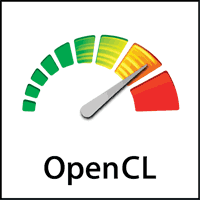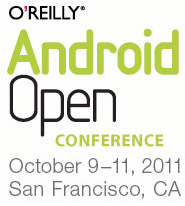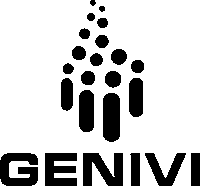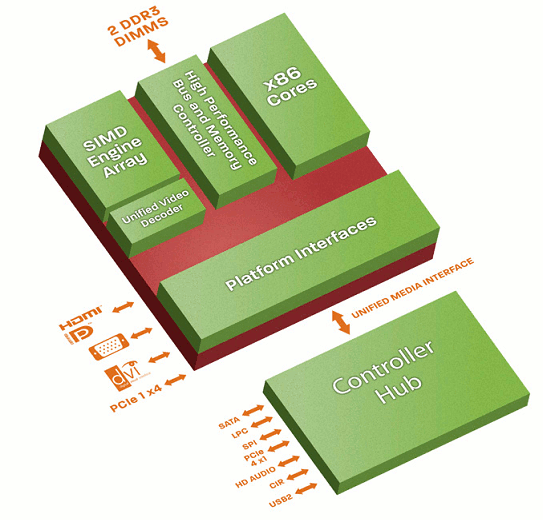Embeded MasterClass will take place in Cambridge on the 5th of October 2011. This conference will give you the chance to meet with embedded systems engineers from many of the world’s leading vendors and you’ll be able to attend presentations and workshops free of charge. Here’s the presentations’ schedule for the event: Time Stream 1 Stream 2 8.30 – 9.30 Tea/Coffee – Meet the Exhibitors 9.30 – 10.15 1: Leveraging the Performance of Intel® Architectures in low power, fan-less solutions with the latest Intel® Atom™ processor-based platform. Regis Cheval CEng MIET, Intel® Atom™ Platform Application Engineer – Intel 10.30 – 11.15 2: Proving your code quality. Barry Lock – Lauterbach 3: Developing reliable embedded systems using COTS and custom processors. Michael Pont, CEO – TTE Systems 11.15 – 11.45 Coffee and Exhibition 11.45 – 12.30 4: Strategic Research Agenda. Helen Finch – Artemis and Infineon 5: Safely from Conception to […]
Tizen: Linux Based OS with HTML5 Application Programming Interfaces
Earlier this week, the Linux Foundation announced yet another new Linux-based open source operating system for mobile and consumer devices based on Web standards called Tizen. This project is backed by Intel and Samsung who have already been involved with Linux based operating systems before, respectively with MeeGo and Bada. Both companies will be part of the technical steering team. It looks like Tizen will replace Meego overtime. Meego developers blasted the move and posted angry comments especially in relation to Qt support and the fact that all the previous work put into the project has probably gone to waste. My take is that using HTML5 is probably not such a bad ideas as many applications are currently developed in HTML5/Javascript for Chrome Webstore for example, and it could make porting those to Tizen straightforward. Tizen will support multiple device categories including: Smartphones Tablets Smart TVs Netbooks In-vehicle infotainment devices […]
OpenCL (Open Computing Language) Overview and SDKs
OpenCL (Open Computing Language) is a multi-vendor open standard for general-purpose parallel programming of heterogeneous systems that include CPUs, GPUs and other processors. OpenCL provides a uniform programming environment for software developers to write efficient, portable code for highperformance compute servers, desktop computer systems and handheld devices. OpenCL standard is managed and defined by the Khronos Group. The latest version (OpenCL 1.1) was ratified by the Khronos Group on the 14th of June 2010 and adds significant functionality for enhanced parallel programming flexibility, functionality and performance including: Host-thread safety, enabling OpenCL commands to be enqueued from multiple host threads. Sub-buffer objects to distribute regions of a buffer across multiple OpenCL devices. User events to enable enqueued OpenCL commands to wait on external events. Event callbacks that can be used to enqueue new OpenCL commands based on event state changes in a non-blocking manner. 3-component vector data types. Global work-offset which […]
Intel and Google to work on Android for Atom
Intel officially announced it will collaborate with Google to optimize the Android OS for Intel’s Atom processor platform in order to help Intel entering the smartphone market. In his keynote on the 13th of September – the first day of the Intel Developer Forum 2011 – Intel CEO Paul Otellini announced the partnership with Google to support Android on Atom processors and said the first Intel-based smartphones will be available in the first half of 2012. Paul Otellini demoed Intel’s Android smartphone reference platform running Android 2.3 (Gingerbread). The phone is 9.5mm thick, had an HDMI output, NFC support and features Intel’s 32nm Medfield processor which is said to include a newer generation GPU. Intel also showed off the new ISP (Image Signal Processor) capabilities in Medfield which is capable of capturing up to 20 fps at 1600 x 1200. However, the reference platform could only deliver 10 fps from […]
Android Open Conference 2011 Schedule
O’reilly’s Android Open Conference 2011 will take place on 9-11 October 2011 in San Francisco. This is the first time this conference takes place. According to the organizers this conference will “cover the entire Android ecosystem. Whether you’re a developer, IT pro, business decision-maker, or marketer, you’ll find the latest and best information for maximizing the power of the Android platform”. There will be keynotes, practical workshops, and expert-led sessions dealing with: Building Android apps: best practices Android internals—under the hood Development tools New frameworks Alternative languages Gaming and game development Enterprise solutions and considerations Performance and security Analytics and revenue models Multiple Android markets Promotion and consumer needs and much more Please find below the schedule for the workshops (Sunday 9th October 2011) and conferences (10-11 October 2011) related to application development and platform development during the 3-day conference. Schedule on the 9th of October 2011 for Application Development […]
What is GENIVI ? A Software Standard for the Automotive Industry
I’ve recently read in the news that a few operating systems had achieved GENIVI compliance. So let’s see what Wikipedia says about the GENIVI Alliance: The GENIVI Alliance was founded on March 2, 2009 by BMW Group, Delphi, GM, Intel, Magneti-Marelli, PSA Peugeot Citroen, Visteon, and Wind River Systems with the goal of establishing a globally competitive, Linux-based operating system, middleware and platform for the automotive in-vehicle infotainment industry. Since then, the alliance has expanded to more than 100 members who are working together to deliver an open and globally consistent software platform based on Linux for use by the whole car industry. So the clear goal here is to have some set of software specifications and standards (Currently GENEVI 1.0) in the automotive industry in order to speed time to market and reduce the cost of developing Infotainment applications. GENIVI comes from a concatenation of Geneva and IVI (In-Vehicle […]
AMD First Embedded Systems APU: AMD Fusion G-Series
Yesterday, AMD announced the first APU (Accelerated Processor Unit) specifically aimed at embedded systems: AMD (NYSE: AMD) today announced immediate availability of the new AMD Embedded G-Series processor, the world’s first and only Accelerated Processing Unit (APU) for embedded systems. The AMD Embedded G-Series, based on AMD Fusion technology, delivers a complete, full-featured embedded platform and incorporates the new low-power, x86 CPU based on the “Bobcat” core with a world-class DirectX® 11-capable GPU and parallel processing engine on a single piece of silicon. This new class of accelerated processor combines more compute capabilities on a single die than any processor in the history of computing and represents opportunity for major advancements in embedded systems. No solution with this level of advanced computing is available for the embedded market today. Numerous embedded systems based on the AMD Embedded G-Series are available today or expected to launch in the coming weeks from […]
The Next Version Microsoft Windows Will Support Embedded Systems based on Intel and ARM
Microsoft announced its new Windows operating system will support SoC based on ARM and is mainly working with NVidia (Tegra Processors), Qualcomm and Texas Instruments. This should allow their customers to provide a wider range of tablets running Windows OS. They will also keep working with AMD and Intel on their low power x86 processors. Here’s an excerpt of the press release: LAS VEGAS — Jan. 5, 2011 — Microsoft Corp. today announced at 2011 International CES that the next version of Windows will support System on a Chip (SoC) architectures, including ARM-based systems from partners NVIDIA Corp., Qualcomm Inc. and Texas Instruments Inc. On the x86 architecture, Intel Corporation and AMD continue their work on low-power SoC designs that fully support Windows, including support for native x86 applications. SoC architectures will fuel significant innovation across the hardware spectrum when coupled with the depth and breadth of the Windows platform. […]








